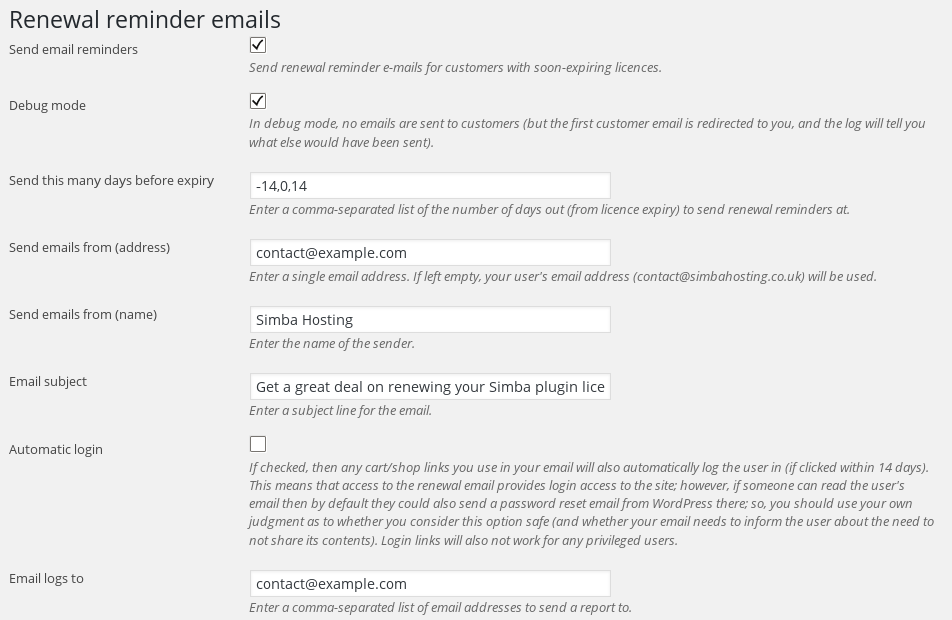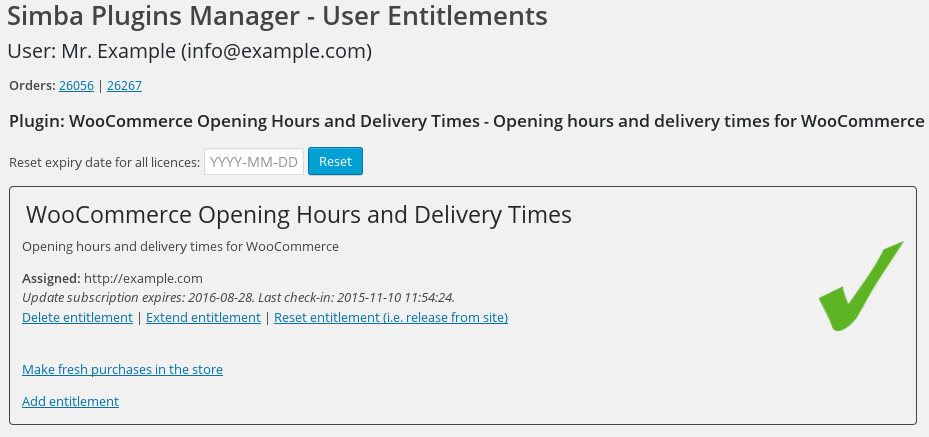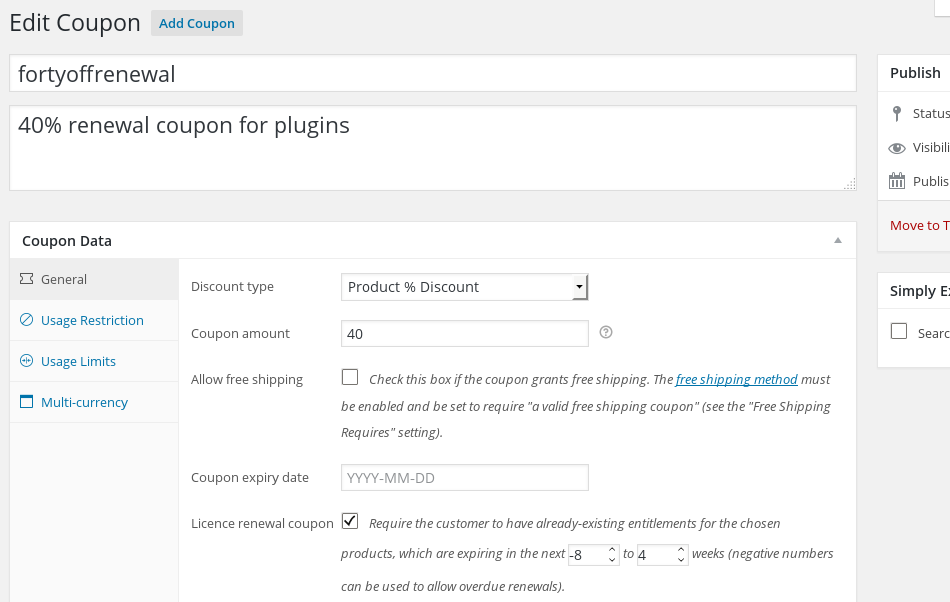Description
Here are some screenshots, to give a fuller idea of the plugin’s capabilities. Each screenshot has some further comments on the capabilities shown.
Configuring the options for the automatic renewal reminder email for your customers:
 Users can be emailed on any schedule you like. There is the option (for WooCommerce users) for users to unsubscribe from renewal reminders. You can test and send yourself tests and debugging logs.
Users can be emailed on any schedule you like. There is the option (for WooCommerce users) for users to unsubscribe from renewal reminders. You can test and send yourself tests and debugging logs.
Editing the automatic renewal reminder email for your customers
The standard WordPress WYSIWYG editor is used for editing your renewal reminder emails. The reminder queue is processed daily; you can also process it manually.
The reminder emails can (via the WooCommerce integration) contain links that take the customer instantly to the shop, and even to automatically log them in and place the relevant items in their cart. Make their renewal as friction-less as possible!
Configuring the automatic reminder emails for your customers:
You can create a WooCommerce coupon (if using the WooCommerce integration) to allow renewals to be discounted. All existing WooCommerce coupon features can be used as well.
Managing a user’s plugin licences
 Shop owners can see and edit users’ licences as they see best. With the WooCommerce integration, links are also shown to the customer’s orders, and back from relevant WooCommerce screens to the licence entitlement screen.
Shop owners can see and edit users’ licences as they see best. With the WooCommerce integration, links are also shown to the customer’s orders, and back from relevant WooCommerce screens to the licence entitlement screen.
A connector class which you can integrate into your plugins with one line of configuration is available:
 To hook up your plugins to receive updates from the updates server, you don’t need to do lots of coding – you just need to include one provided class, and add one line of configuration. The rest is taken care of, beautifully!
To hook up your plugins to receive updates from the updates server, you don’t need to do lots of coding – you just need to include one provided class, and add one line of configuration. The rest is taken care of, beautifully!
Managed plugins:
 You can manage as many plugins as you like.
You can manage as many plugins as you like.
Managing a new plugin:
 When adding a new plugin, the details that you add are shown in the user’s WordPress dashboard, when they view information about the plugin and updates. You can manage both licensed and free plugins.
When adding a new plugin, the details that you add are shown in the user’s WordPress dashboard, when they view information about the plugin and updates. You can manage both licensed and free plugins.
Uploading a new plugin version:
 You can enter information about supported WordPress versions – which will be shown/used in the user’s WordPress dashboard, just like with plugins from wordpress.org.
You can enter information about supported WordPress versions – which will be shown/used in the user’s WordPress dashboard, just like with plugins from wordpress.org.
If the plugin has a readme.txt or changelog.txt, then this is also read, and changelog information from there is shown to the user.
Managing plugin versions:
 For each plugin, you can upload as many potential updates as you like. Downloads are counted.
For each plugin, you can upload as many potential updates as you like. Downloads are counted.
Adding a new rule for which users will receive which updates:
 You can configure sophisticated rules to decide which users are offered which updates – e.g. only offer version 2.0 of your plugin if the user has a recent-enough version of WordPress.
You can configure sophisticated rules to decide which users are offered which updates – e.g. only offer version 2.0 of your plugin if the user has a recent-enough version of WordPress.
Managing the rules as to which users get which update version:
A shortcode is provided to allow users to see what plugins they have and can obtain:
FAQs for Simba plugins (including this one) are available at this link.









